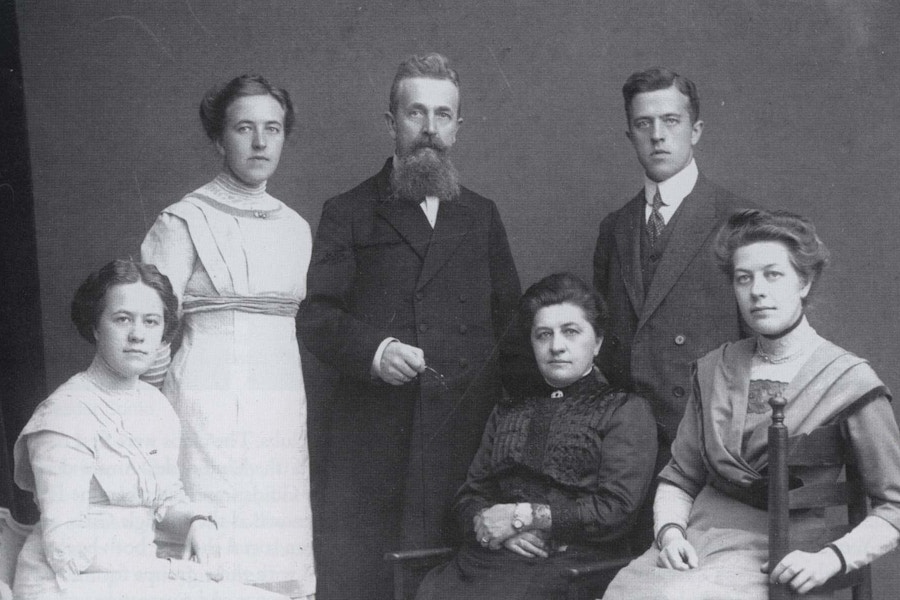Introductory Note:
The Hiding Place tells the true story of a Dutch family who sheltered Jewish refugees in their Haarlem home during Nazi occupation. I read it when I was about 9 years old, and it permanently shaped my understanding of life with God.
In this excerpt, Corrie ten Boom describes an episode that is both horrifying and edifying. A few important lessons shimmer for me here:
I appreciate having a more contemporary example of God speaking through dreams (a form of God’s communication that is sometimes dismissed as a biblical anomaly).
In Betsie’s prayer, I am struck anew by Christ’s desire that we learn to love our enemies.
The sisters’ response during this time of intense trauma exemplifies how Christ-followers can “live courageously in dark times,” as Richard Foster exhorts us to do.
And in Betsie’s interpretation of Corrie’s dream, I am thankful to find a clear vision of how to trust outcomes to God while not withdrawing from active intervention.
The ten Booms teach us not to let the size of a cataclysm discourage us from doing what we can do, as Christ directs. Our goal is sensitivity to his guidance in whatever form it might come, followed by selfless, brave obedience and complete trust that “this, too, is in His hands.”
Grace Pouch
Content Manager
 Excerpt from The Hiding Place
Excerpt from The Hiding Place
I sat bolt upright in my bed. What was that? There! There it was again! A brilliant flash followed a second later by an explosion that shook the bed. I scrambled over the covers to the window and leaned out. The patch of sky above the chimney tops glowed orange-red.
I felt for my bathrobe and thrust my arms through the sleeves as I whirled down the stairs. At Father’s room I pressed my ear against the door. Between bomb bursts I heard the regular rhythm of his breathing.
I dived down a few more steps and into Tante Jans’s room. Betsie had long since moved into Tante Jans’s little sleeping cubicle where she would be nearer the kitchen and the doorbell. She was sitting up in the bed. I groped toward her in the darkness and we threw our arms around each other.
Together we said it aloud:
“War.”
… How long we clung together, I do not know. The bombing seemed mostly to be coming from the direction of the airport. At last we tiptoed uncertainly out to Tante Jans’s front room. The glowing sky lit the room with a strange brilliance. The chairs, the mahogany bookcase, the old upright piano, all pulsed with an eerie light.
Betsie and I knelt down by the piano bench. For what seemed hours we prayed for our country, for the dead and injured tonight, for the Queen. And then, incredibly, Betsie began to pray for the Germans, up there in the planes, caught in the fist of the giant evil loose in Germany. I looked at my sister kneeling beside me in the light of burning Holland. “Oh Lord,” I whispered, “listen to Betsie, not me, because I cannot pray for those men at all.”
And it was then that I had the dream. It couldn’t have been a real dream, because I was not asleep. But a scene was suddenly and unreasonably in my mind. I saw the Grote Markt, half a block away, as clearly as though I were standing there, saw the town hall and St. Bavo’s and the fish mart with its stair-stepped facade.
Then as I watched, a kind of odd, old farm wagon — old-fashioned and out of place in the middle of a city — came lumbering across the square pulled by four enormous black horses. To my surprise I found that I myself was sitting in the wagon. And Father too! And Betsie! There were many others, some strangers, some friends. I recognized Pickwick and Toos, Willem and young Peter. All together we were slowly being drawn across the square behind those horses. We couldn’t get off the wagon, and that was the terrible thing. It was taking us away — far away, I felt — but we didn’t want to go …
“Betsie!” I cried, jumping up, pressing my hands to my eyes. “Betsie, I’ve had such an awful dream!”
I felt her arm around my shoulder. “We’ll go down to the kitchen where light won’t show, and we’ll make a pot of coffee.”
The booming of the bombs was less frequent and farther away as Betsie put on the water. Closer by was the wail of fire alarms and the beep of the hose trucks. Over coffee, standing at the stove, I told Betsie what I had seen.
“Am I imagining things because I am frightened? But it wasn’t like that! It was real. Oh Betsie, was it a kind of vision?”
Betsie’s finger traced a pattern on the wooden sink worn smooth by generations of ten Booms. “I don’t know,” she said softly. “But if God has shown us bad times ahead, it’s enough for me that He knows about them. That’s why He sometimes shows us things, you know — to tell us that this too is in His hands.”
Excerpted from The Hiding Place, 35th Anniversary Edition (Grand Rapids: Chosen, 2006), pp. 78 – 79.
· Last Featured on Renovare.org December 2021


